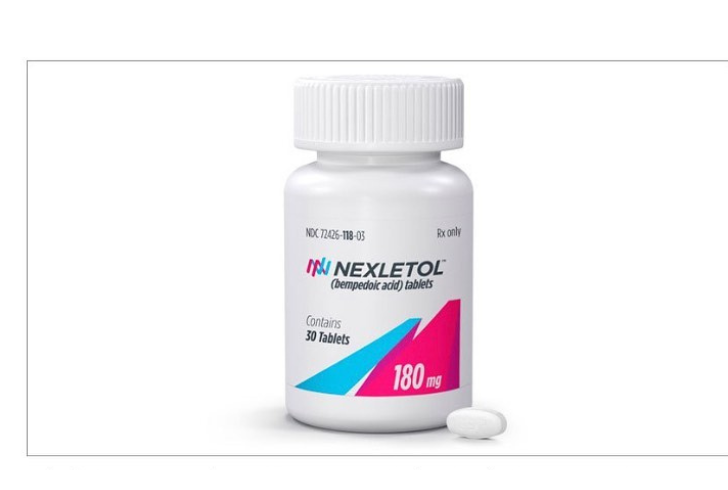High cholesterol remains a major threat to heart health, increasing the risk of cardiovascular events like heart attacks and strokes. While lifestyle changes are key, some individuals may need additional support to manage their cholesterol levels. Bempedoic Acid, a new class of medication, has emerged as a potential solution.
This article explores the evidence behind the drug, examining its ability to lower cholesterol and potentially reduce cardiovascular risk.
Understanding Cholesterol and Its Impact on Heart Health

Freepik | rawpixel.com | Cholesterol affects heart health. It's a vital blood component.
Cholesterol is a waxy substance found in your blood. There are two main types: LDL ("bad" cholesterol) and HDL ("good" cholesterol). LDL cholesterol builds up in your arteries, forming plaque that can narrow them and restrict blood flow to your heart and brain. This can increase your risk of heart attack and stroke.
Clinical trials have shown a clear connection: lowering LDL-C translates to a reduced risk of future cardiovascular events. This is where bempedoic acid steps in.
A New Weapon in the Fight Against High Cholesterol
Bempedoic acid is a first-of-its-kind medication that works by targeting a specific enzyme in the cholesterol production pathway. This unique approach helps reduce the amount of LDL-C your liver produces.
Here's the exciting part: the drug can be used in various scenarios:
- For patients already taking moderate-to-high-intensity statins: If statins alone aren't enough to bring down LDL-C to recommended levels, bempedoic acid can offer an extra boost.
- For patients intolerant to statins: Some people experience side effects with statins, making it difficult to tolerate them. Bempedoic acid provides an alternative option for lowering LDL-C in these cases.
Exploring the Potential Benefits

Instagram | drkarlnadolsky | Using LDL-C reduction from bempedoic acid, researchers estimated a 10-year cardiovascular risk drop.
Researchers conducted a simulation study to assess the potential cardiovascular benefits of bempedoic acid. The study involved analyzing data from patients with ASCVD who participated in clinical trials on the drug.
Here's what they found:
- The study looked at two groups of patients those taking moderate-to-high-intensity statins (Cohort 1) and those intolerant to statins (Cohort 2).
- Researchers used a validated risk prediction model to estimate each patient's 10-year risk of cardiovascular events like heart attack or stroke.
- Based on the observed reduction in LDL-C with bempedoic acid treatment, they estimated the potential decrease in 10-year cardiovascular risk.
The results were promising:
Compared to placebo, bempedoic acid was associated with a predicted decrease in 10-year cardiovascular risk:
- Cohort 1: -3.3%
- Cohort 2: -6.0%
These findings suggest that this drug could be a valuable tool for lowering the risk of cardiovascular events in patients with ASCVD who need extra LDL-C reduction.
Practical Uses of Bempedoic Acid

Instagram | dukehealth | Bempedoic acid prescribed with diet and meds for cholesterol control.
This drug is prescribed along with a healthy diet and other medications to help manage cholesterol levels. It's taken once daily, with or without food.
Here are some key things to remember:
- It works by reducing the amount of cholesterol your liver produces.
- It can be used with statins or as an alternative for those who can't tolerate statins.
- It's crucial to take it regularly for maximum benefit.
- A healthy diet and lifestyle changes like exercise and weight management can further enhance its effectiveness.
Important Note: Always consult your doctor before starting bempedoic acid or any new medication. They can assess your individual needs and determine if it is the right choice for you.
This drug presents a promising option for individuals struggling to manage their cholesterol levels. Studies suggest it can effectively lower LDL cholesterol, potentially leading to a reduced risk of cardiovascular events.
However, further research is needed to fully understand its long-term safety and efficacy. If you're considering Bempedoic Acid, it's crucial to discuss it with your doctor to determine if it's the right approach for your specific needs and health history.




